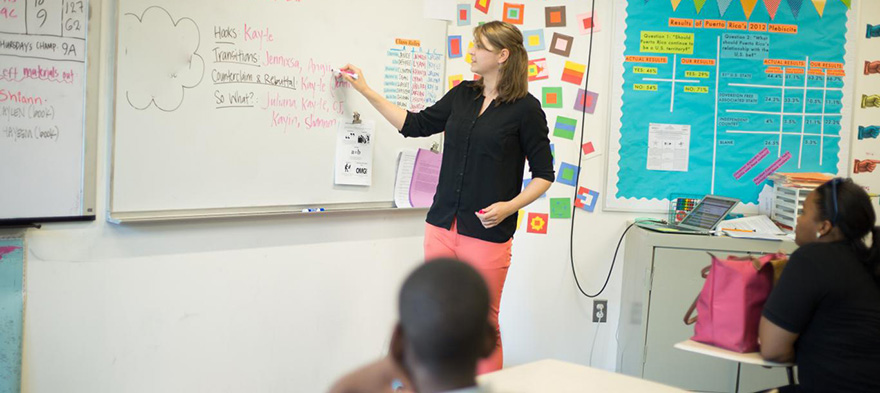
Feb 13, 2018 12:00:00 AM
Sydney Chaffee is the 2017 National Teacher of the Year and a member of the National Network of State Teachers of the Year (NNSTOY). She teaches ninth-grade humanities at Codman Academy Charter Public School in Dorchester, Massachusetts. Sydney is a previous board member of brightbeam, the parent organization of Education Post.
The story you tell yourself about your own math ability tends to become true. This isn’t some Oprah aphorism about attracting what you want from the universe. Well, I guess it kind of is, but...
If you have a child with disabilities, you’re not alone: According to the latest data, over 7 million American schoolchildren — 14% of all students ages 3-21 — are classified as eligible for special...
The fight for educational equity has never been just about schools. The real North Star for this work is providing opportunities for each child to thrive into adulthood. This means that our advocacy...
Your donations support the voices who challenge decision makers to provide the learning opportunities all children need to thrive.
Ed Post is the flagship website platform of brightbeam, a 501(c3) network of education activists and influencers demanding a better education and a brighter future for every child.
© 2020–2024 brightbeam. All rights reserved.
Leave a Comment